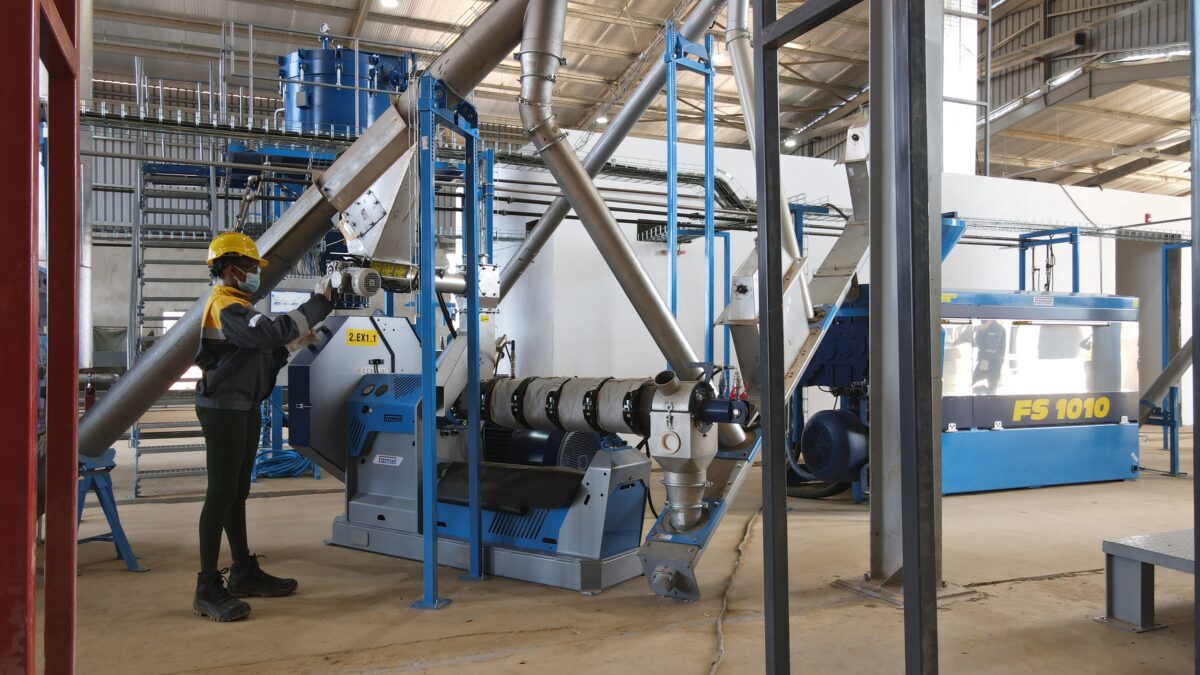$210 Million Boost from IFC to Support Agri-Feedstock Project in Kenya

Eni Engineer at the oilseed collection and pressing plant (agri-hub) in Makueni, Kenya.
The International Finance Corporation (IFC) is planning to inject a substantial loan of up to $210 million into Eni Kenya, an Italian firm, in a strategic effort to fortify its Agri-Feedstock Project in Kenya. This visionary initiative by Eni is set to transform agri-business activities in the region, particularly through the establishment of four cutting-edge Agri-Hubs with a combined annual output capacity of 200,000 metric tons of vegetable oil.
The financing from IFC will be channeled into diverse facets of Eni’s agri-business operations, ranging from setting up working capital for feedstock sourcing to the formulation of a risk-sharing facility in collaboration with a Kenyan commercial bank. The latter will play a key role in supporting portfolios of eligible loans, amounting to $60 million, for farmers and aggregators supplying Eni’s Agri-Hubs.
Eni’s Agri-Feedstock Project aspires to make a positive impact on over 700,000 farming families by 2026, escalating to over a million by 2030. This ambitious undertaking aligns with the broader goal of enhancing food security through the production of one million tons of animal feed and fertilizers by 2026, with even more substantial contributions in the subsequent years.
This narrative is not an isolated case in the global agricultural landscape. It resonates with similar success stories from various corners of the world where agri-tech initiatives have spurred socio-economic development. Particularly noteworthy is the trend of rejuvenating degraded lands, a phenomenon witnessed in diverse geographical settings globally.
The Agri-Feedstock Project involves a collaborative effort with third-party aggregators and farmers, a model reminiscent of successful agri-tech ventures worldwide. This cooperative engagement revolves around the supply of agri-feedstock, encompassing cultivated oilseeds and residues from agro-processing and agroforestry, to Eni’s state-of-the-art Agri-Hubs. These hubs serve as transformative platforms where biomasses are processed to yield vegetable oil, subsequently destined for Eni’s bio-refineries in Italy. The refined products, including various bio-energy derivatives like biofuels, contribute significantly to the renewable energy sector.
READ: Bayer and Microsoft Forge Partnership to Address Data Interoperability Gap in Agriculture
Eni’s global footprint in the Agri Feedstock program is expanding, with a target production of 700,000 tons of vegetable oil in 2026 set to soar to over a million tons by 2030. Notably, Eni has already operationalized one Agri-Hub in Makueni County, with construction underway for a second in Kwale County. Looking ahead, plans for the third Agri-Hub slated for early 2025 are in motion, and the location for the fourth Agri-Hub, boasting a production capacity of approximately 100,000 metric tons per year, is currently under assessment.
The Makueni Agri-Hub, commissioned in July 2022, exemplifies the success of Eni’s vision, producing a substantial 15,000 metric tons of oil annually. The feedstock processed here includes non-food oilseeds, such as castor, cultivated in degraded lands, residues from agro-processing like cotton seeds, and residues from nut processing. Additionally, the hub incorporates other oilseeds, like croton, sourced from spontaneous trees abundant in Kenya.
Biofuels produced from non-edible oilseeds like castor and croton are derived from feedstocks that do not compromise food production. These are grown on degraded lands, primarily in arid and semi-arid areas where traditional food production is impractical. Additionally, some of these oilseeds are cultivated in rotation or intercropping with food crops, ensuring a delicate balance between agri-business expansion and food security.



